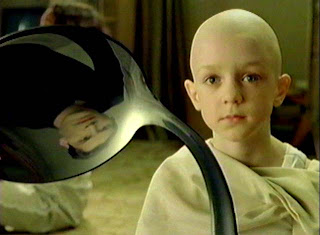WFF 'N PROOF, the manufacturers of LinguiSHTIK, have produced many other games, all having the same parallel-universe board game feel, probably because most of them have educational value as their primary design goal. These games do a good job of challenging the player while being fun enough as a game to suck the player in. Equations: The Game of Creative Mathematics is similar to LinguiSHTIK in that players are setting constraints and trying to find a solution that meets them, but with numbers and mathematical operations instead of letters and words. WFF 'N PROOF cites research suggesting that students who sometimes get to play Equations in math class skip classes less often and are better at applying math concepts.
The even more interesting claim is that another game boosts I.Q. test scores:
The first studies published (in 1972) on the effects of resource allocation games involved I.Q. tests on groups of students playing WFF 'N PROOF: The Game of Modern Logic intensively for three weeks in summer school classes. The average increase in the non-verbal I.Q. scores was more than 20 points. Although researchers have questions about the sort of intelligence actually measured by such tests, it is clear that there was a dramatic improvement in the problem-solving skills utilized in such exercises.
Another game that seems really compelling to me is Queries 'N Theories: The Game of Science & Language. It's the closest thing I have ever seen to a code-cracking game. One player makes up a "language" (consisting of fundamental allowed sentences and rules for transforming those sentences to other sentences). It's a bit like Mastermind except that where Mastermind has one secret sequence of colored tokens that the player is trying to infer, Queries 'n Theories starts off with such a sequence (a "sentence") which the first player morphs according to his transformational rules (like, every instance of GREEN RED transforms to RED YELLOW GREEN) and then presents the result - a more complex sentence in the language - to the other players. The other players then try to figure out the principles of the language by proposing possible sentences which are then accepted or rejected by the player who made up the language.
Like most of the WFF 'N PROOF games, Queries 'n Theories can be scaled down in complexity for the younger part of its age range (only sentences of length four for 12-year-olds) or scaled up to challenge more experienced players (sentences of length thirteen!). The most appealing part about this game, to my mind, is that it teaches scientific thinking and inductive reasoning.
There are two organizations that allow students to play some of these games against each other in a regular tournament: The Academic Games League of America and National Academic Games.
You can buy these games directly from Wff 'n Proof.
Further reading: My previous post on Q-without-U words and a reference to another game about logic, invented by Lewis Carroll.

 and may not be the best choice for a reference. The
and may not be the best choice for a reference. The ![If I stay there can be no party. I must be out there in the night, staying vigilant. Wherever a party needs to be saved, I'm there. Wherever there are words that need anagramming, I'm there. But sometimes I'm not because I'm out there in the night staying vigilant, watching, lurking, running, jumping, hurdling, sleeping. No, I can't sleep. You sleep. I'm awake. I don't sleep. I don't blink. Am I a bird? No. I'm a banana. I am Bananagrammer. Or am I? Yes, I am Bananagrammer. [applies chapstick]](https://blogger.googleusercontent.com/img/b/R29vZ2xl/AVvXsEgI5Yf53B1clpF3cLb11zYrIhaMn1Grv8uDvAhy_9vwjTU-CZCcX5MYmPwX-TnSagBaWwvJpIWeVsOP3q4r6k_HYnuRcVAOou4fwCkkVU7Or2NXmaWfZS6CjtkPnaeIdq3-wvdOC2DJb-Ra/s400/BGR-plot-medium.png)
